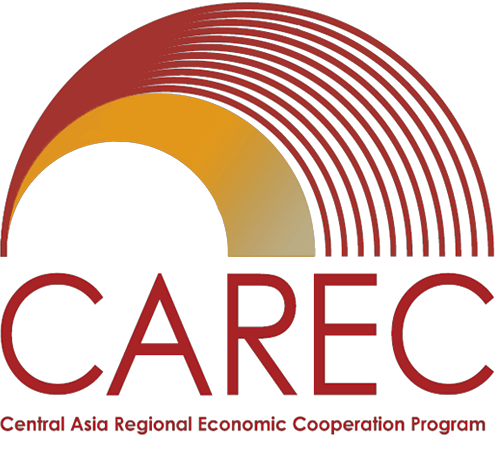Tokyo Declaration pushes regional cooperation for Afghanistan's development
The Tokyo Declaration—Partnership for Self-Reliance in Afghanistan from Transition to Transformation, issued at the Tokyo Conference on Afghanistan on 8 July 2012, endorses regional cooperation to help sustain Afghanistan’s growth and development. The declaration states, “Regional cooperation and integration contribute to the sustainability of development efforts, through increasing economic and trade opportunities as well as enhancing political dialogue.”
With the governments of Japan and Afghanistan as conference co-chairs, ministers and representatives of 55 countries and 25 international and other organizations reaffirmed support for Afghanistan’s sustainable growth and development throughout the Transformation Decade (2015–2024).
The conference, led by Prime Minister of Japan Yoshihiko Noda and President of Afghanistan Hamid Karzai, included high-level participants such as United Nations Secretary-General Ban Ki-moon, and United States (US) Secretary of State Hillary Clinton.
Afghanistan and Regional Cooperation
A landlocked country at the heart of the New Silk Road, Afghanistan is envisaged as a hub and a landbridge at the center of a stable and prospering region. Afghanistan’s future is vital in realizing this vision of regional connectivity and economic integration.
In the declaration, conference participants mentioned ways to promote regional economic cooperation:
- encouraging further support through various regional forums such as the Conference on Interaction and Confidence Building Measures in Asia (CICA) the Economic Cooperation Organization (ECO), the Organization of Islamic Cooperation, the Shanghai Cooperation Organization (SCO), the South Asian Association for Regional Cooperation (SAARC), and the UN Special Program for the Economies of Central Asia (UNSPECA)—thus participants welcomed the granting of observer status to Afghanistan by SCO;
- supporting Afghanistan’s national-level development projects and programs that promote regional economic cooperation;
- providing funding for the Afghanistan Infrastructure Trust Fund managed by the Asian Development Bank (ADB);
- implementing projects and programs at the regional level, particularly those identified in the Fifth Regional Economic Cooperation Conference on Afghanistan (RECCA V) and those by the Central Asia Regional Economic Cooperation (CAREC) Program in 2011 in the areas of transport, trade, energy, and other key sectors; and
- enhancing trade connectivity along historical trade routes, and promoting trade, transit, investment, and border management, through arrangements such as Afghanistan–Pakistan Transit Trade Agreement (APPTA), the transit agreement between Afghanistan and Tajikistan, and the Agreement on Cross-Border Transport of Persons, Vehicles, and Goods (CBTA) among Afghanistan, the Kyrgyz Republic, and Tajikistan within the framework of CAREC.
Participants also shared the view that developing a vibrant private sector will be essential for Afghanistan’s long-term development, supported by an enabling business environment. They encouraged the creation of models for cross-country partnerships in investment to encourage international investors to engage in partnership arrangements with regional investors, as well as with local Afghan entrepreneurs.
Participants also discussed security and the peace process as well as the important role of civil society in advocating for human rights, good governance, and sustainable socioeconomic and democratic development of Afghanistan.
Afghanistan and CAREC
Afghanistan became a CAREC member country in 2005 and has received $2.1 billion worth of investments in transport, trade, and energy. Some of these investments are funded by the Asian Development Bank (ADB), which also serves as the CAREC Secretariat.
ADB President Haruhiko Kuroda reported that within the framework of CAREC, ADB has funded six major regional road and rail corridors in Afghanistan. These include the Ring Road, the north–south corridor, the Kabul to Jalalabad expressway, and the Hairatan to Mazar-e-Sharif railway. In the energy sector, construction of regional transmission lines is being financed to supply electricity to Afghanistan from Uzbekistan and Tajikistan.
Overall, since 2002, ADB has approved more than $2.8 billion in loans, grants, equity investments, and technical assistance for Afghanistan, primarily focused on infrastructure—the backbone of economic and social development—in the transport, energy, water, and irrigation sectors.
$16 Billion in Development Aid
Conference participants committed to provide over $16 billion in development aid through 2015, and sustaining support through 2017. This aid aims to address budget shortfall that cannot be met by Afghanistan’s domestic revenues, as estimated by the World Bank and the Government of Afghanistan.
The following donors announced these commitments:
- ADB pledged a $1.2 billion indicative assistance program for 2012–2016;
- Japan said it will provide up to $3 billion through 2016;
- Germany announced that it will continue its contribution to rebuilding and development at its current level of $536 million a year; and
- the United States has planned to maintain its assistance at about $2 billion a year until 2017.
To ensure continuity and progress, the Government of Afghanistan and participants agreed to establish a follow-up mechanism to review their mutual long-term commitments laid out in the Tokyo Declaration and the Tokyo Mutual Accountability Framework, and to verify the fulfillment of these commitments. The first follow-up meeting will be in 2014, to be co-hosted by Afghanistan and the United Kingdom.
(Photo credit: Department of External Relations, Asian Development Bank)
Related Links
- Full text: Tokyo Declaration—Partnership for Self-Reliance in Afghanistan from Transition to Transformation
- CAREC-funded Projects in Afghanistan
- Speech by ADB President Haruhiko Kuroda at the Tokyo Conference on Afghanistan
- Video: ADB: New Investment for the Creation and Maintenance of Afghanistan Infrastructure Projects Needed
- Photo Essay: Afghanistan: The Next Decade and Beyond
- Infographic: Moving Forward to the Future
